What Is Pool Filter Media?
For many pool owners, the world of pool maintenance can feel like navigating a labyrinth without a map. Thankfully, understanding the role and selection of pool filter media can serve as a compass, leading you from murky waters to the sparkling clarity that beckons on summer days. In this comprehensive exploration, we will voyage through the varieties of filter media, decipher the pros and cons, and chart a course to ensure your pool's longevity and your peace of mind.
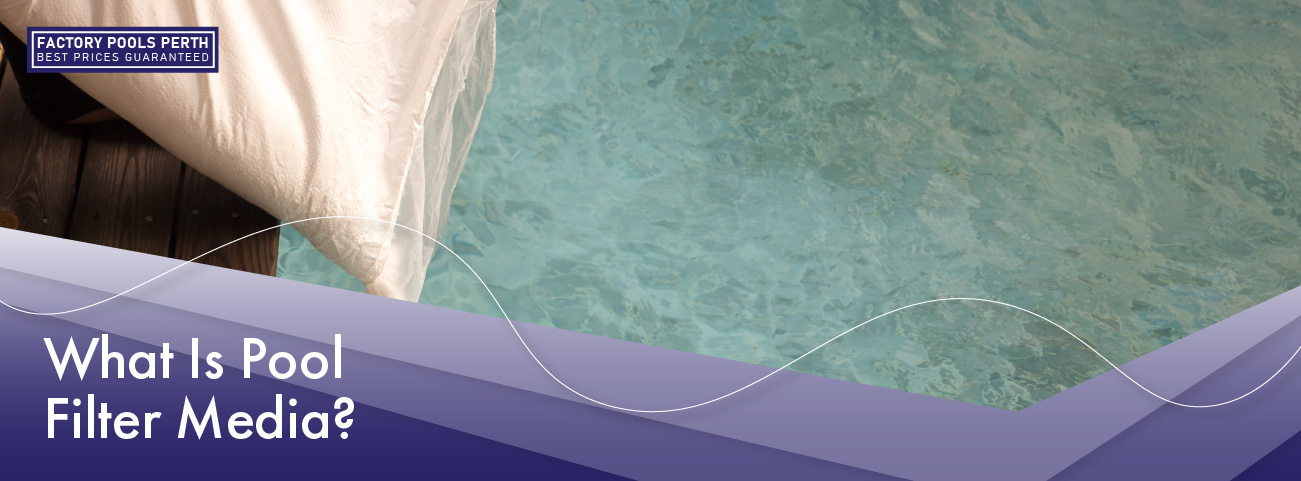
The Role of Pool Filter Media
Imagine your pool filter as the diligent gatekeeper, tirelessly sieving through the water to evict the smallest of impurities that dare to mar the peace of your oasis. The filter media stands as the guardian’s mighty shield, the very barrier that ensures cleanliness.
- Mechanical Filtration: The most common function of pool filter media is to trap debris as water passes through, preventing leaves, insects, and even marine algae from turning your pool into a biological stew.
- Chemical Support: Certain filter media can augment the sanitising efforts of chlorine by increasing the surface area available for reaction, ensuring that even microscopic particles are battled and banished.
- Maintaining Water Health: Effective filter media plays a critical role in maintaining balanced pool water, supporting clarity and health.
Types of Pool Filter Media
There are three primary types of pool filter media, each offering unique characteristics and efficiencies. These include sand filters, which are known for their simplicity and affordability; cartridge filters, which provide a higher level of filtration for clearer water; and diatomaceous earth (DE) filters, which are the most efficient, capable of filtering out the smallest particles for the cleanest pool water.
Sand Filters
Renowned for their durability and cost-effectiveness, sand filters harness the abrasive might of quartz and silica sand to trap particles. They serve as the foundation in many pool filtration systems, particularly in media filters and backwashing setups.
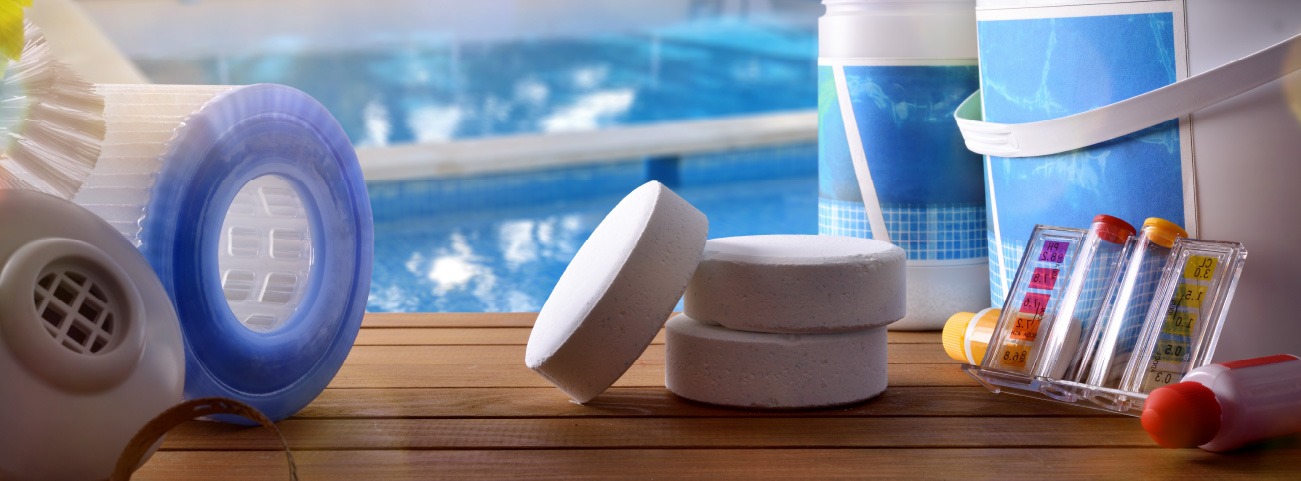
Cartridge Filters
Characterised by their ease of use and fine filtration capabilities, cartridge filters employ cylindrical cartridges woven with polyester, providing exceptional surface area for trapping contaminants without the need for backwashing.
Diatomaceous Earth (DE) Filters
DE filters offer the pinnacle of cleanliness, using a fine, powder-like substance made from microscopic marine organisms to form a robust filtration matrix, capable of capturing even the tiniest of impurities.
Pros and Cons of Each Type
To select the perfect filter media for your needs, it’s crucial to carefully evaluate the advantages and disadvantages of each type available. This involves considering factors such as efficiency, durability, maintenance requirements, and cost-effectiveness to ensure the best possible outcome for your specific application.
Sand Filter Media
Pros:
- Economical and low maintenance
- Long-lasting
- Traps particles down to 20-40 microns
Cons:
- Requires regular backwashing which can lead to water waste
- Replace sand every 7 years
Cartridge Filter Media
Pros:
- Fine filtration (5-10 microns)
- Less demand on the pool’s water due to no backwashing
- Simple to clean and maintain
Cons:
- Relatively higher purchase cost
- Replacement of cartridges every 3-5 years
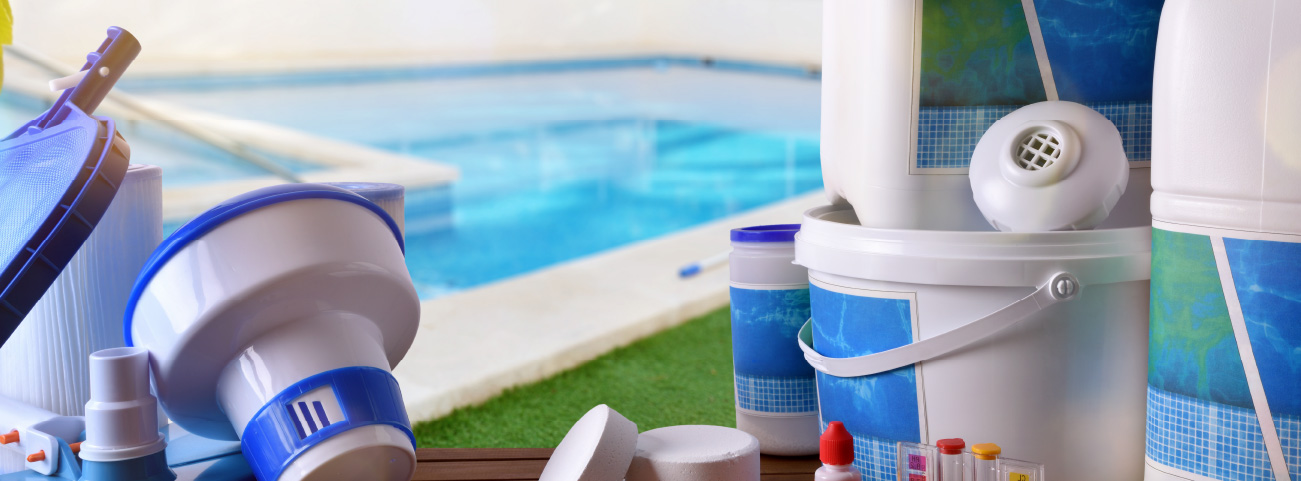
DE Filter Media
Pros:
- Exceptionally fine filtration (2-5 microns)
- Minimal water loss
Effective for longer periods between maintenance
Cons:
- High initial cost
- More intricate cleaning process
How to Choose the Right Filter Media for Your Pool
Selecting the correct filter media depends on the size and type of your pool, as well as your filtration requirements and maintenance preferences.
- Consider Pool Size and Flow Rate: Larger pools or those with high flow rates may benefit from the finer filtration of DE or cartridge systems.
- Assess Water Quality Needs: If your pool is relatively secluded from foliage, a sand filter could be sufficient. However, if pristine water is a non-negotiable standard, opt for a cartridge or DE filter.
- Maintenance Philosophy: Are you a hands-on pool owner or do you prefer lower-maintenance systems? Your answer will guide you towards the most suitable filter media.
Tips for Maintaining Your Pool Filter Media
Filter media, like any equipment, requires consistent care to perform optimally throughout its lifespan.
- Regular Cleaning: Follow manufacturer recommendations for the frequency of cleaning your media.
- Proper backwashing: For sand filters, ensure backwashing is done correctly to avoid channelling, where water finds the path of least resistance and particles escape into the pool.
- Replace When Necessary: Don’t wait until your filter media is a lost cause. Regularly inspect and replace media to maintain water quality.
The Key Role of Filter Media in Pool Maintenance
Filter media is often the unsung hero in the complex world of pool maintenance, playing a crucial role that many overlook. This vital component works tirelessly behind the scenes, diligently trapping and eliminating the various forms of detritus – from leaves and dirt to microscopic invaders – that threaten to cloud our pools’ sparkling allure. By doing so, filter media ensures that we can enjoy our swims in water that is not just clear, but also healthy and inviting. Understanding your filter media goes beyond grasping its mechanical function; it involves recognising its pivotal role in creating an environment of ease and enjoyment for pool owners. Knowing how to choose, maintain, and replace filter media can significantly impact the quality of your pool experience, making it an essential aspect of pool care to master.
What Is Pool Filter Media?
For many pool owners, the world of pool maintenance can feel like navigating a labyrinth without a map. Thankfully, understanding the role and selection of pool filter media can serve as a compass, leading you from murky waters to the sparkling clarity that beckons on summer days. In this comprehensive exploration, we will voyage through the varieties of filter media, decipher the pros and cons, and chart a course to ensure your pool's longevity and your peace of mind.
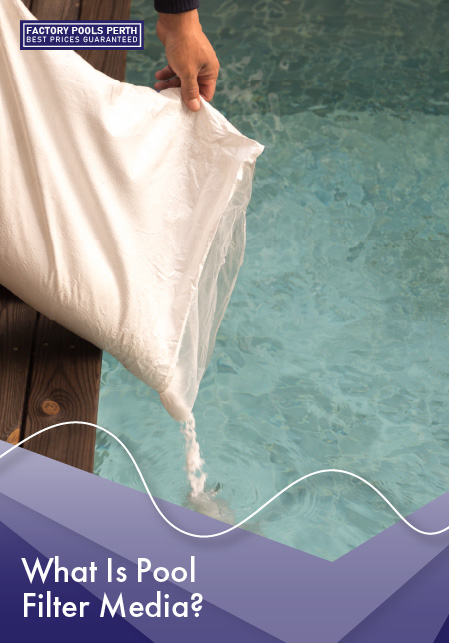
The Role of Pool Filter Media
Imagine your pool filter as the diligent gatekeeper, tirelessly sieving through the water to evict the smallest of impurities that dare to mar the peace of your oasis. The filter media stands as the guardian’s mighty shield, the very barrier that ensures cleanliness.
- Mechanical Filtration: The most common function of pool filter media is to trap debris as water passes through, preventing leaves, insects, and even marine algae from turning your pool into a biological stew.
- Chemical Support: Certain filter media can augment the sanitising efforts of chlorine by increasing the surface area available for reaction, ensuring that even microscopic particles are battled and banished.
- Maintaining Water Health: Effective filter media plays a critical role in maintaining balanced pool water, supporting clarity and health.
Types of Pool Filter Media
There are three primary types of pool filter media, each offering unique characteristics and efficiencies. These include sand filters, which are known for their simplicity and affordability; cartridge filters, which provide a higher level of filtration for clearer water; and diatomaceous earth (DE) filters, which are the most efficient, capable of filtering out the smallest particles for the cleanest pool water.
Sand Filters
Renowned for their durability and cost-effectiveness, sand filters harness the abrasive might of quartz and silica sand to trap particles. They serve as the foundation in many pool filtration systems, particularly in media filters and backwashing setups.
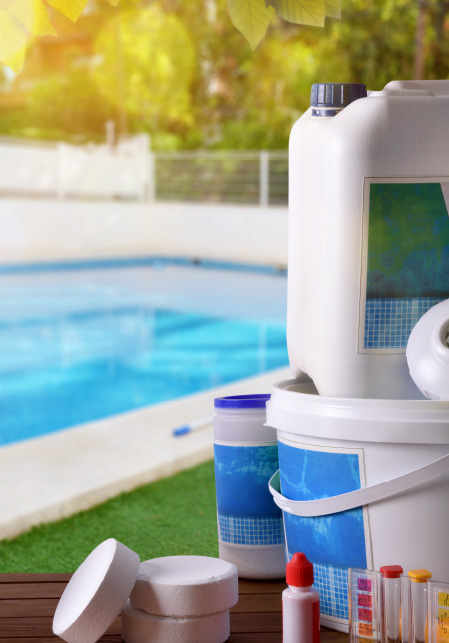
Cartridge Filters
Characterised by their ease of use and fine filtration capabilities, cartridge filters employ cylindrical cartridges woven with polyester, providing exceptional surface area for trapping contaminants without the need for backwashing.
Diatomaceous Earth (DE) Filters
DE filters offer the pinnacle of cleanliness, using a fine, powder-like substance made from microscopic marine organisms to form a robust filtration matrix, capable of capturing even the tiniest of impurities.
Pros and Cons of Each Type
To select the perfect filter media for your needs, it’s crucial to carefully evaluate the advantages and disadvantages of each type available. This involves considering factors such as efficiency, durability, maintenance requirements, and cost-effectiveness to ensure the best possible outcome for your specific application.
Sand Filter Media
Pros:
- Economical and low maintenance
- Long-lasting
- Traps particles down to 20-40 microns
Cons:
- Requires regular backwashing which can lead to water waste
- Replace sand every 7 years
Cartridge Filter Media
Pros:
- Fine filtration (5-10 microns)
- Less demand on the pool’s water due to no backwashing
- Simple to clean and maintain
Cons:
- Relatively higher purchase cost
- Replacement of cartridges every 3-5 years
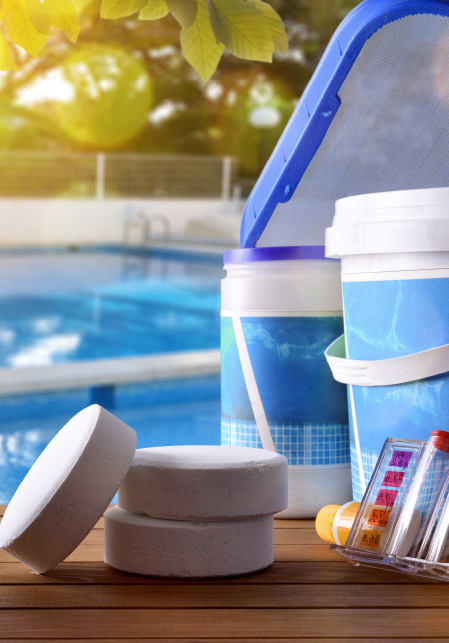
DE Filter Media
Pros:
- Exceptionally fine filtration (2-5 microns)
- Minimal water loss
Effective for longer periods between maintenance
Cons:
- High initial cost
- More intricate cleaning process
How to Choose the Right Filter Media for Your Pool
Selecting the correct filter media depends on the size and type of your pool, as well as your filtration requirements and maintenance preferences.
- Consider Pool Size and Flow Rate: Larger pools or those with high flow rates may benefit from the finer filtration of DE or cartridge systems.
- Assess Water Quality Needs: If your pool is relatively secluded from foliage, a sand filter could be sufficient. However, if pristine water is a non-negotiable standard, opt for a cartridge or DE filter.
- Maintenance Philosophy: Are you a hands-on pool owner or do you prefer lower-maintenance systems? Your answer will guide you towards the most suitable filter media.
Tips for Maintaining Your Pool Filter Media
Filter media, like any equipment, requires consistent care to perform optimally throughout its lifespan.
- Regular Cleaning: Follow manufacturer recommendations for the frequency of cleaning your media.
- Proper backwashing: For sand filters, ensure backwashing is done correctly to avoid channelling, where water finds the path of least resistance and particles escape into the pool.
- Replace When Necessary: Don’t wait until your filter media is a lost cause. Regularly inspect and replace media to maintain water quality.
The Key Role of Filter Media in Pool Maintenance
Filter media is often the unsung hero in the complex world of pool maintenance, playing a crucial role that many overlook. This vital component works tirelessly behind the scenes, diligently trapping and eliminating the various forms of detritus – from leaves and dirt to microscopic invaders – that threaten to cloud our pools’ sparkling allure. By doing so, filter media ensures that we can enjoy our swims in water that is not just clear, but also healthy and inviting. Understanding your filter media goes beyond grasping its mechanical function; it involves recognising its pivotal role in creating an environment of ease and enjoyment for pool owners. Knowing how to choose, maintain, and replace filter media can significantly impact the quality of your pool experience, making it an essential aspect of pool care to master.



